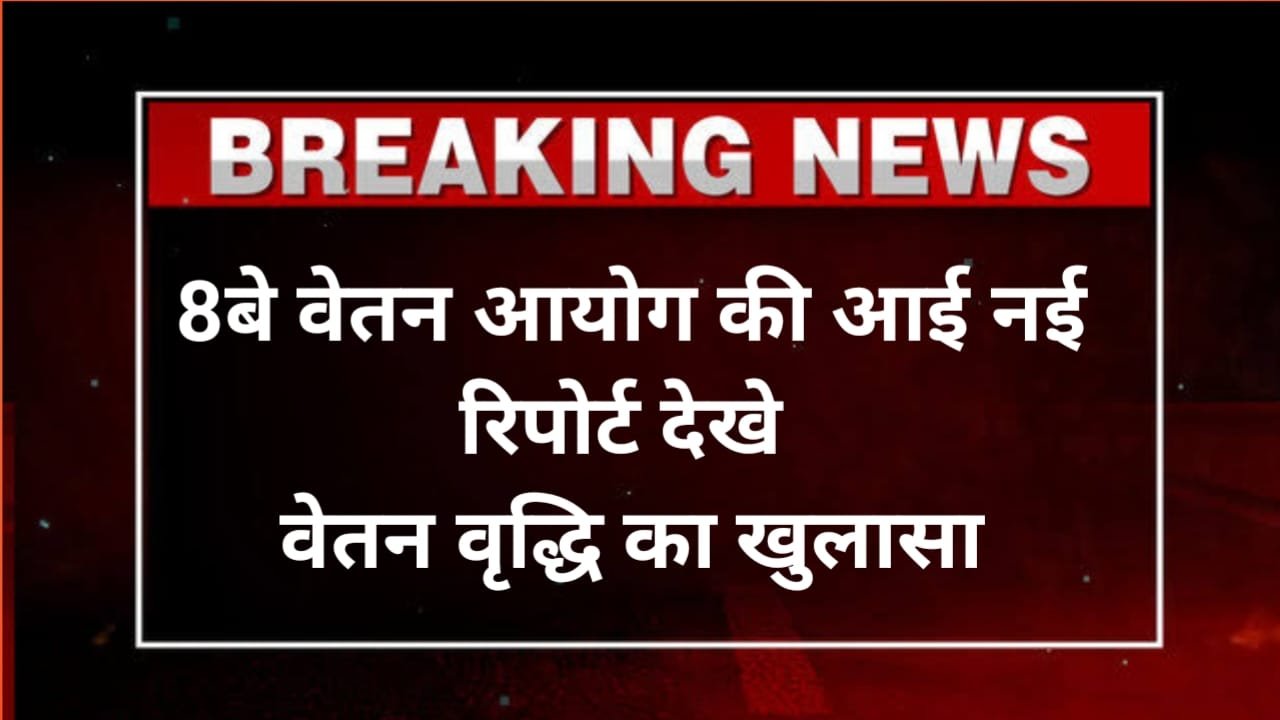Central government employees and pensioners are buzzing with excitement and confusion over the 8th Pay Commission, set to roll out on January 1, 2026. Recent reports claiming a minimum basic salary of ₹12,000 have been debunked, with experts predicting a much higher minimum, possibly ₹51,480, based on a fitment factor of 2.86. The Union Cabinet approved the commission on January 16, 2025, promising better salaries and pensions for over 48 lakh employees and 67 lakh pensioners. While the official notification is still awaited, discussions on platforms like X show high hopes for a 30–34% salary hike. Here’s the latest on what’s coming and how it affects you.

Why the ₹12,000 Salary Claim Is Wrong
Social media and some news outlets recently sparked panic by suggesting the 8th Pay Commission would set the minimum basic salary at ₹12,000, lower than the current ₹18,000 under the 7th Pay Commission. However, reliable sources, like Ambit Capital and NDTV, clarify this is false. The 8th Pay Commission is expected to boost the minimum basic salary significantly, with estimates ranging from ₹32,000 to ₹51,480, depending on a fitment factor between 1.8 and 2.86. The confusion around ₹12,000 likely stems from misinterpretations of old pay scales or unverified X posts. Employees can expect a substantial raise, not a cut.
Expected Salary and Pension Hikes
The 8th Pay Commission will use a fitment factor to calculate new salaries, likely between 1.8 and 2.86, compared to 2.57 in the 7th Pay Commission. This could raise the minimum basic salary from ₹18,000 to ₹32,400 (1.8 factor) or ₹51,480 (2.86 factor). For example, an employee with a ₹50,000 basic salary could see it jump to ₹90,000–₹1,43,000. Pensions will also rise, with the minimum pension possibly increasing from ₹9,000 to ₹20,500–₹25,740. Here’s a quick look:
| Category | Current (7th CPC) | Expected (8th CPC) |
|---|---|---|
| Minimum Basic Salary | ₹18,000 | ₹32,400–₹51,480 |
| Minimum Pension | ₹9,000 | ₹20,500–₹25,740 |
| Fitment Factor | 2.57 | 1.8–2.86 |
Dearness Allowance (DA), currently at 55%, will reset to zero, but allowances like House Rent Allowance (HRA) and Travel Allowance (TA) will also increase.
How the 8th Pay Commission Works
The 8th Pay Commission, approved by PM Narendra Modi’s Cabinet, will review salaries, pensions, and allowances to match inflation and living costs. It will consult employee unions and state governments to finalize the fitment factor and pay matrix. The process, expected to take 18–24 months, includes setting up a panel with a chairperson and members by early 2026. The commission aims to boost employee morale and support India’s economy, with an estimated cost of ₹1.8 lakh crore. The new pay matrix will cover all job levels, from clerks to senior officers, ensuring fair raises.
How to Prepare for the Changes
Employees and pensioners can use tools like the ClearTax 8th Pay Commission Salary Calculator to estimate their new salary. To calculate, multiply your current basic salary by the fitment factor (e.g., 2.86) and add revised HRA and TA. For example:
- Current basic salary: ₹40,000
- Fitment factor: 2.86
- New basic salary: ₹40,000 × 2.86 = ₹1,14,400
- Add HRA (24% for metro cities): ₹27,456
- Estimated gross salary: ₹1,41,856 (DA starts at 0%)
Check official updates on government websites like finmin.nic.in to avoid falling for rumors. Keep your bank details ready for updated salary credits.
What’s Next for Employees and Pensioners
The 8th Pay Commission is expected to finalize its recommendations by late 2026, with implementation from January 1, 2027, if delays occur. The revised pay matrix will simplify salary slabs, and pensions will see a 20–30% boost, ensuring better financial security for retirees. Employees should stay informed through reliable sources like Hindustan Times or NDTV, as unverified X posts have spread false claims like the ₹12,000 salary. The commission’s changes will also increase spending power, boosting markets for housing, healthcare, and goods, as per Ambit Capital. For queries, contact the Finance Ministry via finmin.nic.in. This is a big opportunity—stay updated and plan ahead.
